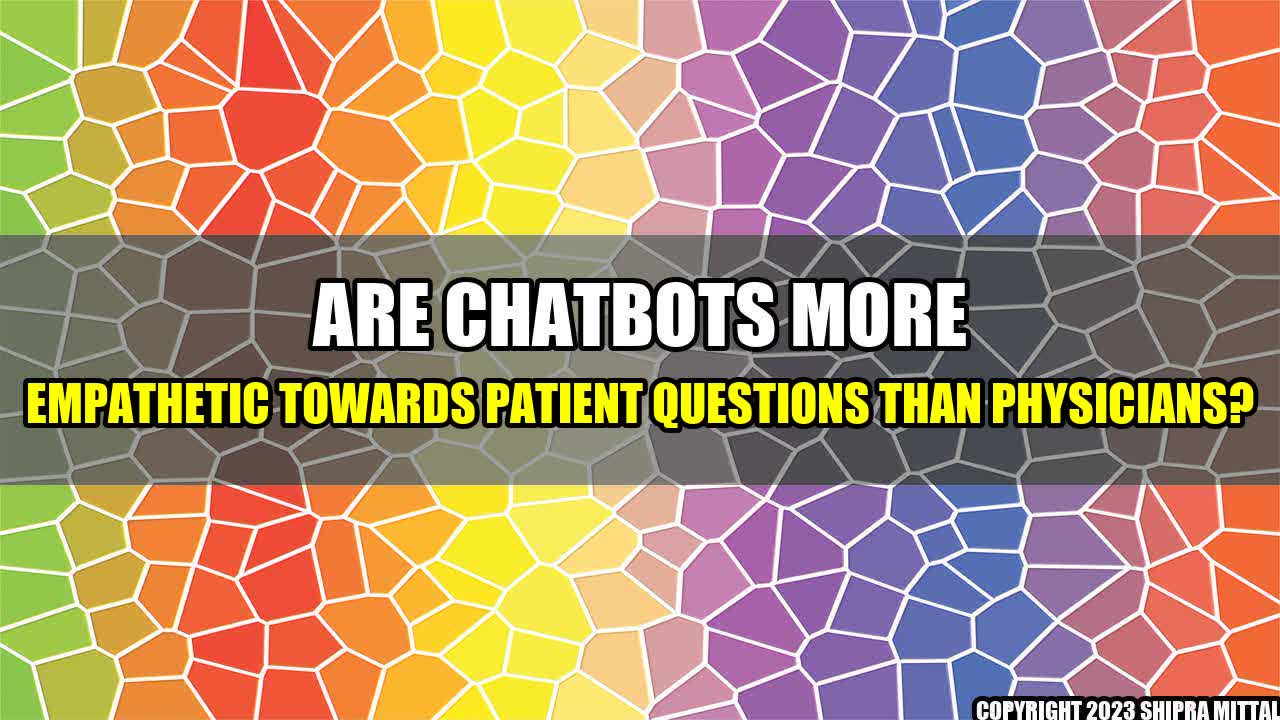
‚??I didn‚??t really feel like my doctor was listening to me. I felt like they were just going through the motions.‚??
These words were spoken by Rachel, a woman in her early thirties who had just left her primary care physician‚??s office feeling defeated and unheard. She had come in with a list of symptoms that had been bothering her for weeks, and she had hoped for answers, or at the very least, a listening ear. Instead, she had gotten a rushed consultation and a prescription for painkillers.
This situation is not uncommon in healthcare, and it raises questions about the role of empathy in the doctor-patient relationship. Can technology, specifically chatbots, fill the gap that physicians sometimes leave behind?
Empathy is the ability to understand and share the feelings of another person. In healthcare, empathy is often considered a fundamental aspect of providing quality care. Empathy helps to build trust between the patient and the physician, and it can also lead to better outcomes. Research shows that when physicians demonstrate empathy towards their patients, they are more likely to follow their treatment plans and have better health outcomes.
However, physicians are not always able to provide the level of empathy that patients need. Time constraints, burnout, and a lack of training can all contribute to a physician‚??s inability to connect with patients.
Chatbots are computer programs that use artificial intelligence to simulate human interaction. They have been used in healthcare to answer patient questions, provide information about medical conditions, and assist with appointment scheduling.
One potential benefit of chatbots is their ability to provide empathy to patients. Because they are not subject to the same time constraints and emotional exhaustion that physicians may experience, chatbots can give patients the time and attention they need. Additionally, chatbots can be programmed to use empathetic language, acknowledge patients‚?? feelings, and offer support.
Several companies are already using chatbots to provide healthcare services to patients. One such company is K Health, which provides a chatbot that asks patients about their symptoms and suggests possible diagnoses. The chatbot uses language that is empathetic and non-judgmental, and it also acknowledges the uncertainties that patients may feel when seeking medical advice.
Another company, Buoy Health, has developed a chatbot that provides patients with information about their symptoms and recommends whether they should seek medical attention. The chatbot also uses empathetic language and even asks patients about their emotional state.
Empathy is a critical component of healthcare, but physicians may not always be able to provide the level of empathy that patients need. Chatbots offer a potential solution by providing patients with time, attention, and empathetic language. However, it is important to remember that chatbots cannot replace the human connection that patients crave, and that data privacy and security concerns must be addressed.
Reference URLs and Further Readings:
#chatbots #physicians #empathy #healthcare #patientquestions #technology
Healthcare & Technology
Akash Mittal Tech Article
Share on Twitter Share on LinkedIn